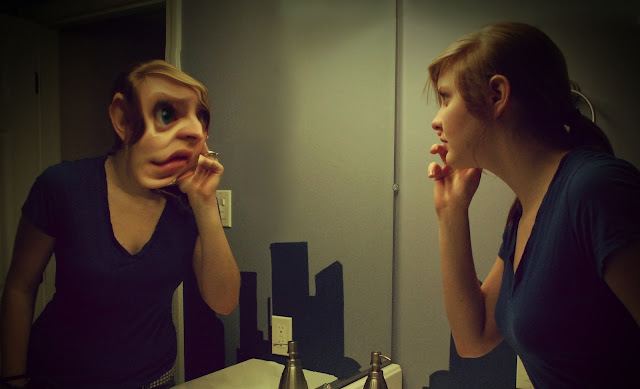After Childhood: From False Beliefs to Wholeness
Many people who have been actively or passively hurt as children often ponder the perpetrator’s motives and reasons behind it.
“Why did you hit me when I was so helpless and vulnerable?”
“Why didn’t you want to spend more time with me?”
“Why didn’t you treat me like a person?”
“Why did you demean and belittle me instead of encouraging and helping me?”
“Why did you yell at me so much?”
“Why didn’t you care that I was hurt?”
“Why did you leave me alone with my troubles when I felt so overwhelmed and lonely?”
“Why weren’t you a decent role model for me?”
“Why did you disregard my feelings, wants, and preferences?”
“Why didn’t you care more?”
“Why didn’t you love me?”
Children look for explanations of these things in order to make sense of it. Since putting responsibility on one’s caregivers is usually not allowed, the child internalizes it. Moreover, children are often explicitly blamed for being abused. And so “the explanation” involves self-blame, and results in a shattered self-esteem and diminished or skewed self-worth.
“I must have deserved it.”
“It was my fault.”
“I don’t matter.”
“I was a bad, problematic child.”
“I was annoying and disrupting you.”
“It helped me become more self-sufficient.”
“It wasn’t that bad.”
“Everyone goes through something like that.”
“I’m worthless.”
“Everyone hates me.”
“I didn’t need them anyway.”
“It’s not important.”
“I am unlovable.”
“It’s normal.”
Whatever beliefs a person has learned, they get carried into adulthood. As a result, the adult-child continues to deny or justify their painful experiences. And sometimes the person simply lacks a more rounded view, because if you grow up in a certain environment without any comparison or a different perspective, how would you know what’s normal and what’s not?
Some of those believes are explicit and conscious, others are subtle and completely out of a person’s consciousness. Yet in my years of studying human psyche and behavior and working with people all over the world with various degrees of adverse childhood experiences, I have encountered so many of these invisible wounds and false beliefs. To be perfectly honest, I haven’t met or observed anybody who hasn’t exhibited it in one form or another (including myself).
It takes a lot of awareness, honesty, and self-work to accurately identify and effectively resolve these false beliefs, and overcome the problematic emotions and unwanted behaviors that stem from them.
After going through some healing and personal growth, these beliefs are slowly replaced by more realistic ones.
“I didn’t deserve it.”
“Having been abused was not my fault, so I don’t feel guilty.”
“It’s not normal to be abused, so it’s okay to feel angry about it.”
“I am not ashamed of it because I did nothing wrong. It’s the perpetrator to whom the shame belongs.”
“I am not less than others.”
“I have both good qualities and shortcomings, but as a human being I am not inherently defective.”
“People don’t automatically hate me.”
“If someone dislikes me I am not going to die.”
“Even if my caregivers didn’t care enough or didn't love me, I love myself and care about myself now.”
Sometimes people try to convince themselves of these healthier, more realistic beliefs, but until it connects not just on an intellectual but also on an emotional level the person still feels and acts in the old, familiar ways. Oftentimes there is a back-and-forth period where these things are starting to connect, but it’s not quite there yet.
Again, it takes time, work, and effort—but when it actually clicks, then it clicks forever.
What false beliefs do you have or had in the past? How did it affect your self-esteem? What behaviors did it result in? What helped you overcome it? Feel free to share your thoughts in the comments below or write about it in your personal journal.
Support my work by becoming a Patreon subscriber for $5/mo or more and get access to bonus articles. And check out my book Human Development and Trauma: How Childhood Shapes Us into Who We Are as Adults. Thanks!




Hi, you say "...Again, it takes time, work, and effort—but when it actually clicks, then it clicks forever." My question is, "What is the work?"
ReplyDelete